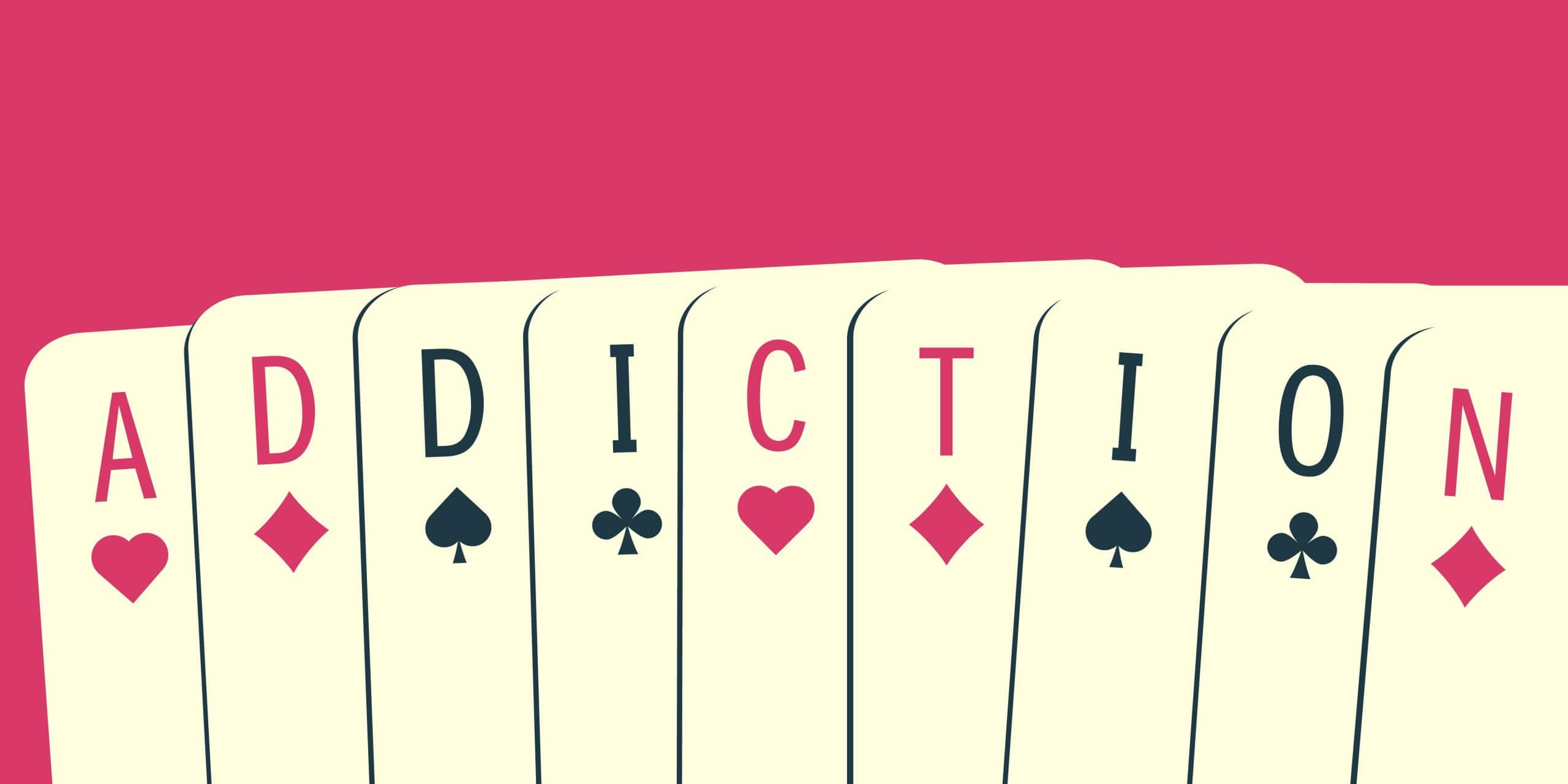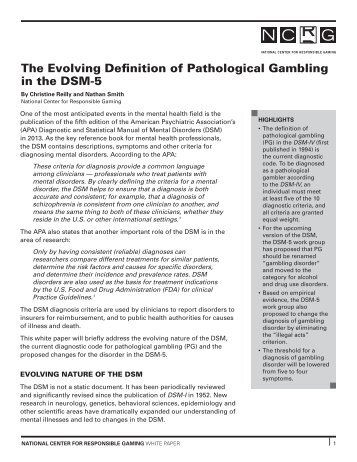Pathological Gambling Define

- Pathological Gambling Define Meaning
- Pathological Gambling Definition
- Pathological Gambler Define
- Define Pathological Gambling
- Pathological Gambling Define Articles
- Pathological Gambling Meaning
Pathological gambling (PG) is a relatively common disorder associated with significant personal, familial, and social costs. The condition is currently classified as an impulse control disorder, although similarities exist with other disorders, particularly substance addictions. 'he authors classified a child as engaging in pathological gaming if the child endorsed 5 out of 10 specific symptoms. Although the authors did not explicatively define these symptoms in the article, here are the 10 symptoms of pathological gambling as adapted for pathological gaming.
Pathological gambling disorder is seen as gambling which is uncontrollable and can alter and adversely affect the individual’s recreational and social activities. This disorder has an extremely disruptive and adverse affect on the life of the individual that suffers from it. As a result of this pathological gambling, individuals may end up losing all of their life savings, and may also be forced to commit various crimes including forging checks, stealing or embezzling in order to acquire more money to fulfill their compulsive habit. This disorder can also lead to the development of major problems in relationships as well as jobs.
Pathological gambling can also be described as an Impulse Control Disorder1 or process addiction which is different from addictions to elements such as alcohol, food, tobacco and drugs. These types of addictions include a ‘high’ or a ‘rush’ which is gained when certain actions are performed as part of the addictive behavior. In case of gambling, the individuals may gain the ‘high’ from the overall setting and atmosphere of the place, for example a bingo hall, casino, race track and other places. The feeling that the individual gets from taking risks in this environment can evoke the addiction further. In many cases it is seen that compulsive gamblers own a piece of clothing or accessory which they claim is lucky for their gambling, and hence wear it every time they participate in a gambling activity. Some of these individuals use the piece of clothing or accessory to acquire the ‘high’ or ‘rush’ before gambling.
Causes:
The definite causes of pathological gambling disorder are unknown, although there are a number of studies and surveys that indicate that there is a significant difference on biological levels, between the general population and the compulsive gamblers. These surveys however cannot form the basis of the causes of pathological gambling. Many people tend to use their habit of gambling in order to gain an escape from signs of depressions which is more commonly seen in women than in men. Some of the gamblers seek to gamble in order to alter their moods because of the intense amount of energy and excitement that is commonly seen in gambling rooms. Thus, it is common to find that some people may be interested in other aspects of gambling than simply the money that is involved. It can be said that they ‘rush’ or ‘high’ that is seen in individuals suffering from pathological gambling disorders may not be associated with the money.
Symptoms:

Some of the most common symptoms that are seen in individuals suffering from pathological gambling disorder include immense amount of preoccupation with activities associated with gambling which tend to interfere with the individual’s social, occupational and personal life. The individual fells that he/she cannot control these gambling instincts and thus continues to visit casinos to place bets, failing to stop or cut down on the habit. One of the most commonly seen behaviors among compulsive gamblers is known as chasing. Chasing refers to placing bets of large amounts of money and thus taking more risks. This is done in order to make up for money that has been lost in gambling previously by the individual. The individual is also prone to immoral activities such as lying, forgery, stealing, fraud involved with credit cards, embezzling, and various other behaviors that are associated with acquiring money for gambling.
Demographics:
Gambling disorder affects more males than females in the United States with a sex ratio of 2:1. Over all as many as 4% of the population of the United States might meet the criteria for the disorder. In some countries this percentage is as high as 7%.
Diagnosis:
The disorder is usually diagnosed when an affected persons family or spouse become concerned and is seldom self reported. The most common symptom that most patients suffer from is Denial.

The Diagnostic and Statistical Manual of Mental Disorders(4th edition), specifies that a person affected with pathological gambling disorder must have at least 5 of the following symptoms to meet the diagnostic criteria for the disorder:
- The person thinks about gambling almost all the time
- The person keeps using larger and larger amounts of money every time when gambling
- The person has tried to stop gambling but has been unable to do so
- Whenever the gambling is stopped, the person becomes moody or cranky
- The person uses gambling as a method to escape problems
- The person continues to gamble in order to win back the money that has been lost (“chasing”)
- The person lies about the severity and extent of gambling
- The person has engaged in illegal or immoral behavior in order to make money for gambling
- The person has problems at home or work because of the gambling
- The person tends to rely on other people to get out of financial problems that have been caused by gambling
Treatments:
There are many treatments available for pathological gambling disorder:
- Psychodynamic Psychotherapy
- Cognitive Behavioral Therapy
- Substance Abuse Treatment
- Relaxation Techniques
- Aversion Therapy
- Gamblers Anonymous
References:
Impulse Control Disorders: A Clinician’s Guide to Understanding and Treating Behavioral Addictions Jon E. Grant

APA: Diagnostic and Statistical Manual of Mental Disorders. 4th ed. text revision
Also found in: Dictionary, Thesaurus, Financial, Encyclopedia.
gambling
[gamb´ling]Pathological Gambling Define Meaning
Management Gamblers’ Anonymous, a 12-step program modeled after Alcoholics’ Anonymous; no phramacologic intervention has proven successful
Pathological Gambling Definition
pathological gambling
An addiction to the state of excitement experienced while gambling. There is progressive preoccupation with betting and a need to increase the size of wagers to achieve the desired mental effect. The syndrome includes lying to conceal losses, stealing and rationalising the theft as temporary borrowing. If gambling is prevented there is irritability, restlessness and even physical symptoms.Want to thank TFD for its existence? Tell a friend about us, add a link to this page, or visit the webmaster's page for free fun content.